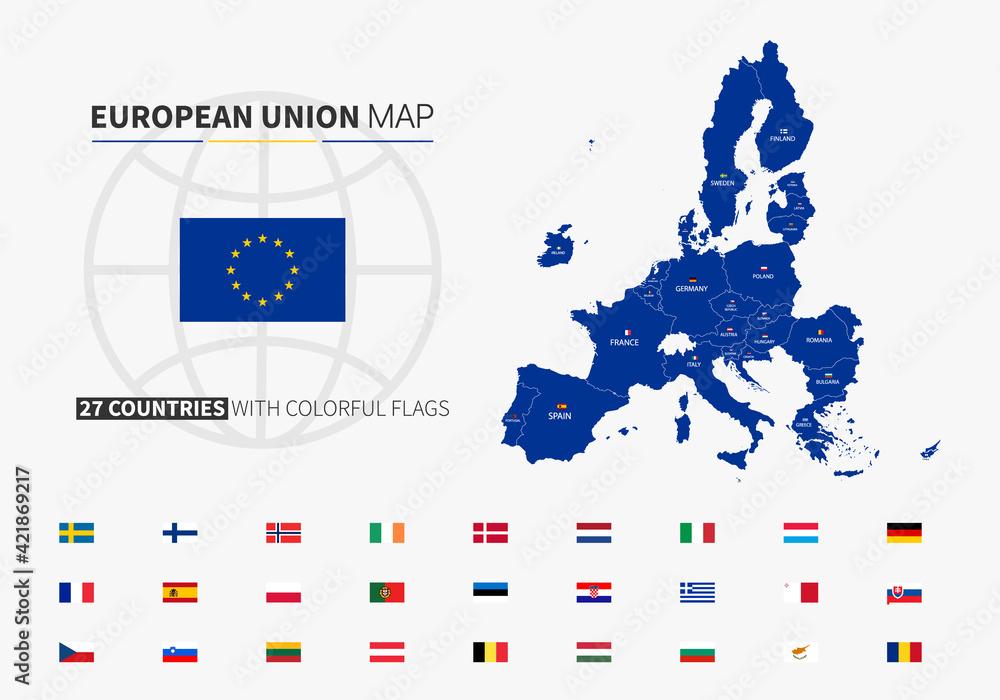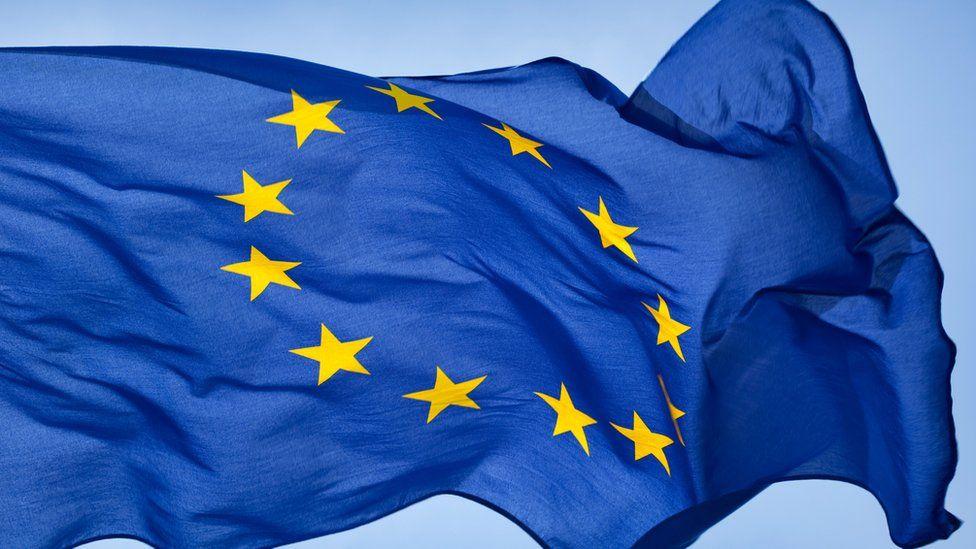In the intricate tapestry of European Union laws, a new thread is being woven that promises to reconfigure the landscape of road travel across the continent. As vehicles crisscross the invisible borders that stitch the diverse fabric of EU countries together, a crucial change is on the horizon that aims to ensure justice does not stop where national boundaries begin. In a move that is both timely and telling, EU nations are set to broaden the spectrum of infractions for which foreign drivers can be held accountable. This imminent shift reflects not just an evolution in legal framework, but a deeper commitment to road safety and equitable treatment of drivers, irrespective of their country’s flag adorning their license plate. Amidst the harmonious discord of languages, cultures, and laws, this change champions a unified approach to tackle the perennial issue of road discipline, weaving a new narrative of transnational accountability on the bustling highways and serene byways of Europe. Join us as we navigate through the implications of this pivotal policy adjustment, exploring its contours and considering its impact on everyone from the daily commuter to the intrepid traveler venturing beyond their homeland’s embrace.
EU Expands the List of Fines for Foreign Drivers: What You Need to Know
Driving across the European Union (EU) has become a staple for the modern traveler, offering an unparalleled way to experience the diverse cultures, sceneries, and histories of its member countries. However, with increased mobility comes greater responsibility, and the EU is setting strict measures to ensure road safety and compliance are maintained at all times. In a pivotal move, regulators have decided to widen the scope of traffic offences for which foreign drivers can be held accountable. This decision aims to create a uniform road safety environment across the EU, effectively minimizing the discrepancies in traffic law enforcement between locals and visitors.
The updated regulations introduce an expanded list of infractions subject to fines, irrespective of the driver’s country of origin. Key among them include:
- Speeding: Exceeding speed limits, which vary significantly across EU countries, can now attract fines regardless of the driver’s nationality.
- Distracted Driving: Using a mobile phone or other electronic devices while driving, a major cause of road accidents, is strictly forbidden and now enforceable on all drivers within the EU.
- Seatbelt Usage: Not wearing a seatbelt, a vital safety measure, is penalized in every member state, with fines now extended to foreign motorists.
- Drunk Driving: Driving under the influence of alcohol has always been a severe offense, with the threshold for blood alcohol content varying by country. EU regulators are reinforcing efforts to penalize offenders from any country.
- Ignoring Red Lights: Running red lights, a hazardous infraction that endangers all road users, is included in the list of offenses for which fines are now applicable universally.
As part of these changes, a sophisticated cross-border exchange of information system will facilitate the tracking of offenses and ensure that fines reach offenders in their home country. This initiative underscores the EU’s commitment to road safety and the principle of equal treatment for all drivers on its roads. Before embarking on a road trip across the EU, it’s crucial for drivers to familiarize themselves with these new regulations. Staying informed helps prevent unintended infractions and contributes to a safer, more enjoyable travel experience across Europe.
Understanding the Legal Changes: From Speeding to Littering
In light of recent legislative adjustments across the European Union, the scope of motoring offences for which foreign drivers can be penalised has been broadened significantly. This move aims to enhance road safety and environmental protection by holding all drivers accountable, regardless of their country of registration. The changes mean that offences ranging from speeding to littering from vehicles now carry penalties that can be enforced across borders. This marks a significant shift in how traffic laws apply to non-residents, reflecting the EU’s commitment to uniform road safety standards.
To better understand the spectrum of offences covered under the new legislation, here’s a rundown:
- Speeding: Exceeding the speed limit can now result in fines being issued to drivers, even if their vehicle is registered in a different EU member state.
- Not wearing a seat belt: This basic safety violation is similarly enforceable across EU borders, emphasizing the importance of seat belt use.
- Drink-driving: With the harmonization of penalties, driving under the influence of alcohol has become a universally punishable offence, aiming to reduce alcohol-related accidents.
- Using a mobile phone without a hands-free system while driving: In an effort to combat distracted driving, penalties for using a mobile device without a hands-free system will be enforceable against foreign drivers.
- Littering from a vehicle: Beyond traditional traffic violations, the act of littering from a vehicle is now a punishable offence, highlighting the EU’s dedication to combating environmental pollution.
| Offence | Punishable in EU |
|---|---|
| Speeding | Yes |
| Not wearing a seat belt | Yes |
| Drink-driving | Yes |
| Using a mobile phone without a hands-free system | Yes |
| Littering from a vehicle | Yes |
With these legal advancements, the EU aims to cultivate a safer and cleaner driving environment, demonstrating that road safety and environmental concerns transcend national borders. By broadening the range of enforceable offences, the legislation not only standardizes penalties but also encourages a more responsible and law-abiding approach to driving among visitors and residents alike.
Tips for Avoiding Penalties While Driving Abroad in the EU
Diving into the vibrant streets of European countries can be an exhilarating experience for any traveler. However, amidst the allure of historic landscapes and bustling city squares, it’s paramount to stay attuned to the traffic regulations that vary from one country to another within the European Union. The key to a seamless journey lies in preparation and awareness. Here are some indispensable tips that can help you steer clear of unwanted penalties while you navigate the roads in the EU.
First and foremost, familiarize yourself with local traffic laws before hitting the road. Each member state has its quirks and nuances when it comes to road rules. For instance, speed limits in urban areas might significantly differ from one country to another. Equip yourself with a comprehensive guide on these laws or utilize smartphone apps designed for this exact purpose. Furthermore, ensure your vehicle documents and international driving permit are within arm’s reach at all times. Authorities may require you to present these documents, and having them ready can prevent any undue hold-ups.
Next, be keen on adhering to speed limits and alcohol consumption laws. The EU is particularly stringent with regulations concerning driving under the influence, with some countries adopting zero tolerance policies. To avoid hefty fines—or worse, imprisonment—it’s prudent to abstain from drinking if you plan to drive. Additionally, pay close attention to parking regulations. Unauthorized parking can result in fines or, in some cases, having your vehicle towed. Look out for signposts or consult with locals to find legal parking spaces.
| Common Offences | Penalty Range** |
| Speeding | €50 – €800* |
| Parking Violations | €20 – €200* |
| Driving Under Influence | Up to €5,000* |
| Using Mobile Phone without Hands-Free | €100 – €200* |
*These values are estimates and can vary greatly depending on the specific country within the EU.
**Penalty Range signifies fines that could be levied for the indicated offences, reflecting the variance across different EU countries.
Lastly, adopting a defensive driving approach can significantly diminish the risk of accidents and, by extension, penalties. Stay vigilant, keep a safe distance from other vehicles, and always be prepared for unexpected events. By embracing these practices, you can ensure a journey that’s not only memorable but also free of unwelcome surprises in the form of penalties. Drive safely and enjoy the unmatched beauty that Europe has to offer!
Navigating New Regulations: Recommendations for International Drivers in Europe
Embarking on a road journey across the diverse landscapes of Europe can be an exhilarating experience. However, with the recent adjustments in traffic law enforcement across the European Union, it’s crucial for international drivers to stay abreast of the changes to avoid inadvertently racking up fines. From the rolling vineyards of France to the historic streets of Rome, local traffic laws hold new implications for foreigners behind the wheel. It’s not just about keeping to the left or right anymore; it’s about understanding the wider net of rules now applicable to non-resident drivers.
Firstly, it is paramount for international drivers to familiarize themselves with the expanded list of offenses that authorities are now enforcing across borders. These include, but are not limited to:
- Speeding: This remains the most common cause of fines. Note that speed limits may vary significantly from one country to another, and in some places, even from one street to the next.
- Use of mobile phones: With the crackdown on mobile phone use while driving, it’s important to use hands-free devices when necessary. In some jurisdictions, even touching your phone while at a red light can result in a fine.
- Incorrect parking: Parking regulations can be notoriously complex in European cities. Always look for and adhere to local parking signs and rules to avoid penalties.
- Not paying road tolls: Many European countries operate toll roads. Non-payment or underpayment can lead to fines, often levied through car rental companies for tourists.
Additionally, it’s helpful to check whether the country you intend to visit has specific emissions or environmental zones, as driving a non-compliant vehicle in such areas can also lead to fines.
Awareness and preparation are your best tools for a hassle-free driving experience in Europe. By staying informed about these changes and adapting accordingly, you can focus more on the journey ahead and less on the rearview mirror. Safe travels!
In Summary
As the roads that stitch the tapestry of the European Union become ever more integrated, the lines between borders blur under the swift wheels of travel. The impending shift in regulations is not just a footnote in the tome of the EU’s legal framework but a salient chapter in the saga of transcontinental mobility. This change, broadening the scope of fines foreign drivers can incur, rewrites the narrative of accountability on the open road. As this new chapter unfolds, drivers will navigate not only the physical landscapes of Europe’s diverse terrains but also the intricate topography of its laws. It’s a reminder that in the ever-closer union of European nations, the journey of ensuring safety and fairness is perpetual, shared by all who tread its paths, regardless of the flag their vehicle bears. As we turn the ignition on this new policy, let us drive forward with a keen awareness of our shared responsibility to each other, no matter the distance from home.




